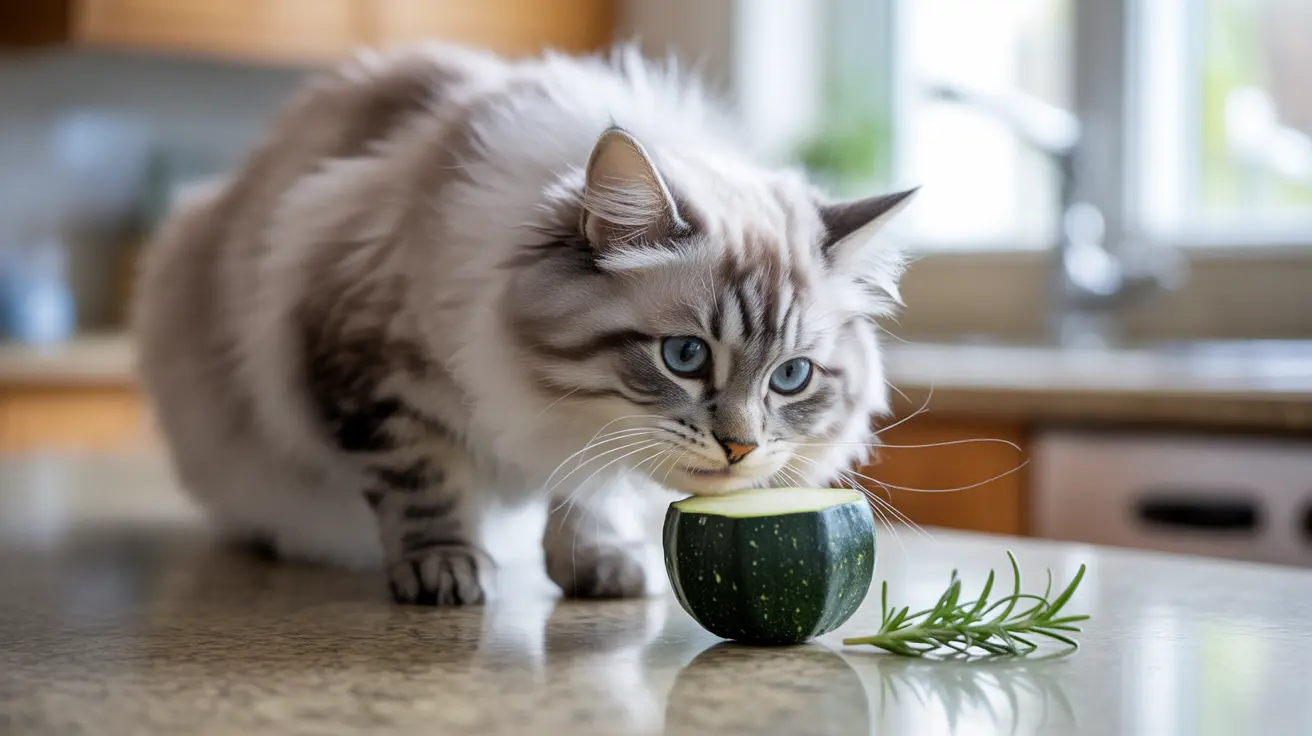Nutritional Benefits of Zucchini for Cats
Zucchini offers several valuable nutrients that can benefit your cat's health:
- High water content (about 95%), supporting hydration
- Low in calories, making it ideal for weight management
- Rich in dietary fiber for digestive health
- Contains essential minerals like potassium and magnesium
- Provides antioxidants including lutein and zeaxanthin
- Source of vitamins A, C, and B-complex
Safe Preparation Methods for Feline Consumption
When preparing zucchini for your cat, follow these essential guidelines:
- Wash thoroughly to remove pesticides and dirt
- Cut into small, manageable pieces to prevent choking
- Serve plain without seasonings, oils, or additives
- Consider steaming or cooking lightly to enhance digestibility
- Start with tiny portions to test acceptance
Raw vs. Cooked: Which is Better?
Both raw and cooked zucchini are safe for cats, but each has its advantages. Raw zucchini maintains more nutrients but may be harder for some cats to digest. Cooked zucchini is softer and often more palatable, making it an excellent choice for senior cats or those with dental issues.
Portion Control and Feeding Guidelines
While zucchini is safe, moderation is key. Follow these recommendations:
- Limit zucchini to 10% or less of your cat's daily food intake
- Start with small pieces once or twice a week
- Monitor your cat's reaction to the new food
- Increase portions gradually if well-tolerated
- Always maintain a primarily meat-based diet
Health Benefits and Special Considerations
Zucchini can provide several health advantages for cats:
- Weight management support through low-calorie bulk
- Improved hydration from high moisture content
- Better digestive health due to fiber content
- Potential reduction in hairball formation
- Added variety to their diet for mental stimulation
Signs Your Cat May Not Tolerate Zucchini
Watch for these potential adverse reactions:
- Digestive upset or diarrhea
- Vomiting
- Loss of appetite
- Unusual behavior or lethargy
- Allergic reactions (rare but possible)
Frequently Asked Questions
Is zucchini safe for cats to eat, and can it cause any allergies?
Yes, zucchini is safe for cats to eat. While allergies are rare, always introduce it gradually and watch for any adverse reactions. Most cats tolerate zucchini well when properly prepared and served in moderation.
What are the health benefits of feeding zucchini to my cat?
Zucchini provides hydration, fiber for digestive health, and various nutrients while being low in calories. It can aid in weight management and may help prevent constipation and hairballs.
How should I prepare and introduce zucchini into my cat's diet?
Start with small, plain pieces of washed zucchini. Introduce it gradually, mixed with regular food if needed. Avoid seasonings or additives, and ensure pieces are small enough to prevent choking.
Can zucchini help with my cat's weight management or urinary health?
Yes, zucchini's low calorie and high moisture content make it beneficial for weight management and urinary health. The fiber content helps cats feel full while consuming fewer calories.
Should I feed my cat raw or cooked zucchini, and are there any preparation tips?
Both raw and cooked zucchini are safe. Cooking can make it more digestible and appealing to cats. Always serve plain, without seasonings, and cut into small, manageable pieces.
Conclusion
Zucchini can be a healthy addition to your cat's diet when properly prepared and served in moderation. While it shouldn't replace their primary meat-based nutrition, it can provide valuable benefits for weight management, hydration, and digestive health. Always consult with your veterinarian before making significant changes to your cat's diet, and monitor their response when introducing any new food.






